As COVID-19 cases in Nigeria spike again after weeks of decline and easing of restrictions on social activities and gatherings across the country, the general public seems to have grown weary and indifferent in the scramble for survival amid a recession. Reporter, Gabriel Atumeyi, writes that despite warnings and advisories by various organs of government on the need to adhere to COVID protocols, many Nigerians seem to have thrown caution to the winds, ahead the yuletide celebrations.
Deadlier second wave?
On Monday, December 14, the government of Kaduna state announced the closure of boarding schools across the 23 Local Government Areas of the state. The statement added that all schools in the state were to close as from Wednesday, December 16, 2020.
According to its Commissioner for Education, Dr. Shehu Makarfi, the closure followed an upsurge of the COVID-19 infections in the state and the desire to curb the spread of the pandemic following a looming second wave.
According to Makarfi, the rising cases of COVID-19 showed a replicate of figures recorded in the first wave of the scourge in April, May and June 2020, indicating that the new wave of the infection is rapidly spreading across the state.
This is coming just as it was reported that the Chief Justice of Nigeria (CJN), Tanko Muhammad, had tested positive for COVID-19 and was in Dubai for treatment.
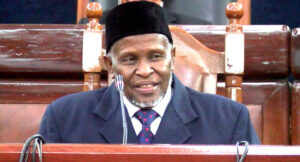
*CJN Tanko
At about the same time, 26 Nigerian Army generals and the Governor of Lagos State, Mr Babajide Sanwo-Olu, also tested positive for the virus.
The infected military officers who were attendees of the 2020 Chief of Army Staff Annual Conference at the Nigerian Army Resource Centre in Abuja, were said to have had contact with the late Major General Olu Irefin, erstwhile General Officer Commanding (GOC) 6 Division, Port Harcourt, who died from COVID-19-related complications two weeks ago.
Even Boss Mustapha, the Secretary to the Government of the Federation, who doubles as the Chairman of the Presidential Task Force on COVID-19 Control, and his wife, Olu, had to go into isolation after members of his household tested positive for the virus.
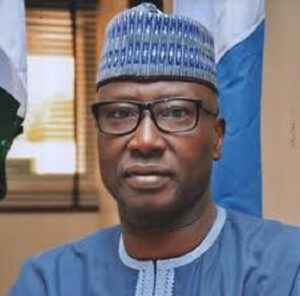
*Mustapha
Similarly, the Governor of Kaduna State, Nasir El-Rufai and most recently, Governor Aminu Tambuwal of Sokoto, also took the route of self-isolation, after meeting several high profile persons who later tested positive for the ailment.
Though the Sokoto State Governor, Aminu Tambuwal, has disclosed that he tested negative to the virus, the above mentioned are only but the prominent names in the rising number of cases, with the country recording its highest ever daily figure of 1,145 new infections on Thursday, December 17 – surpassing the toll of 796 cases recorded penultimate Friday, which smashed the previous record of 745 reported on June 19.
Steady rise of infections amidst relaxed COVID-I9 protocol implementation
In an advisory released on the 11th of December by the Nigeria Centre for Disease Control (NCDC), the agency had highlighted the fact that the number of infections across the country was on a steady rise.
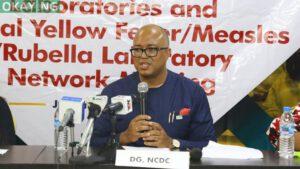
“Since the beginning of September to the end of November 2020, Nigeria has recorded a gradual increase in the number of confirmed COVID-19 cases in the country. However, in the last week (30th of November to the 6th of December), our surveillance system has recorded a sharp increase in cases. The average number of daily cases recorded in the last week was higher than was recorded between September – November,” the NCDC said.
With the possibility of a second wave staring everyone in the face, the government promptly ordered the reopening of all isolation and treatment centres in the country; but gave no further directive apart from the usual caution urging the citizenry to try and stay safe.
Thus, all other activities remained at their normal level, with the slightest attempt at enforcement of the COVID-19 protocols derided by the populace.
While the Nigerian public seemed to have let down their guard, as 365Daily earlier reported, Europe and other places round the world were engrossed in a frantic rush to deal with the second wave of the virus, with many countries likely to experience a muffled Christmas celebration.
On Monday, the Government of India joined other nations to announce that it will temporarily ban flights from the United Kingdom to the country after the emergence of a new and highly infectious strain of the coronavirus in Britain.
It is not clear how the Buhari-led Nigerian government intends to manage the situation, particularly with rising food prices, biting hunger, high unemployment level and economic recession engendered by the first wave of the virus and given that the yuletide is around the corner.
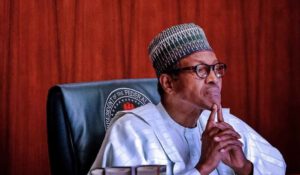
Though the government has been grappling with the vicissitudes as best as it can – with its Survival Funds and the Central Bank of Nigeria, CBN backed MSMEs support programmes – locking down the economy a second time appeared to be a last and most undesirable option, particularly in the shadows of the #EndSARS protests and the ravaging insecurity across the country.
Between survival and infection
In a chat with 365Daily, the spokesperson of the Ministry of Health, Olujimi Oyetomi, said that the ministry was working round the clock with all stakeholders to manage the situation.
“We have a situation room, with daily congregation of experts and health partners under the chairmanship of Professor Tomori. We converge physically and through online, to review the situation and make findings and recommendations, which is relayed to the Presidential TaskForce on COVID-19.
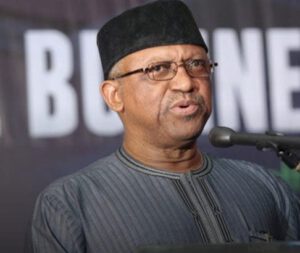
*Minister of Health, Dr. Ehanire
“If a shutdown is necessary because people refused to adhere to COVID-19 protocols, be assured that the leadership of the Federal Ministry of Health would not hesitate to recommend same to Mr President,” he said.
When contacted, chairman of the ministry’s situation room, renown Professor of Virology, Oyewole Tomori, stated that the blame for the resurgence lies with both the government and the people.
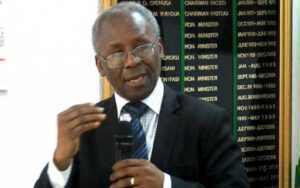
*Prof. Oyewole
“The problem is not whether you lockdown or not, it is whether you comply with the procedures to prevent transmission, but we are not doing that, so when we lock ourselves and we are not adhering to the protocols in the course of our social gatherings and other activities, that is why we are getting this big surge that is coming.
“It is the people that are the important factor in the spread of the virus. If you remove the people’s role, then forget it, you are not going to stop anything. So you can lockdown and still see a rise in cases.
“In some recent studies we did, of over 50,000 people that came back into the country, only about 13 percent have been tested within 7 days of arrival, so the about 80 percent outside, we do not know what their situation is,” Tomori disclosed.
Also speaking to 365Daily, former Minister of Education, Professor Chinwe Obaji, said the government has been sounding the warning but the Nigerian public have continued to indulge in negligence.
She said: “Nigeria is not an island and as long as people are traveling, what is happening elsewhere I see is bound to happen here.
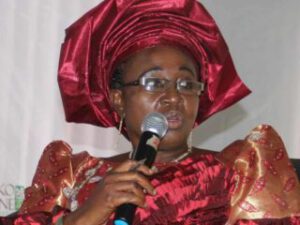
*Prof. Obaji
“We have totally abandoned the protocols. You can see the gatherings at marriages, and worship centres. Even air flights have failed in their enforcement of the COVID-19 protocols.”
Speaking to 365Daily, Jide Ojo, a social analyst and development expert, disclosed that the government is in an unenviable position, given the challenge associated with the new situation, and thus has to strike a balance between livelihood and life.
He said, “The point is, how is Nigeria prepared for the resurgence, in as much as they didn’t shut down international travels?
“If we should lock down the second time, the economy is already in recession, and this recession is said to be the worst in 30 years. So if you are locking down, how do you ensure citizens survive it?
“This is the time to heighten and strengthen public communications, orientation of people to use non-pharmaceutical public health measures,” he added.
For now, as both the nation and citizenry grapple with a second wave of Covid-19, they both walk a delicate balance: ensuring the health and wellbeing of the people, as well as safeguarding the economic survival of the country.